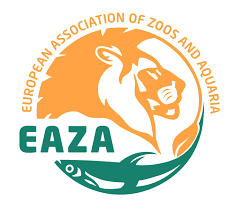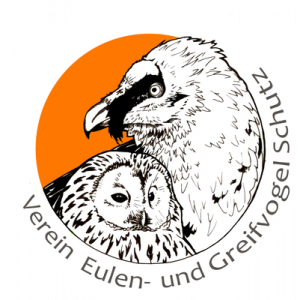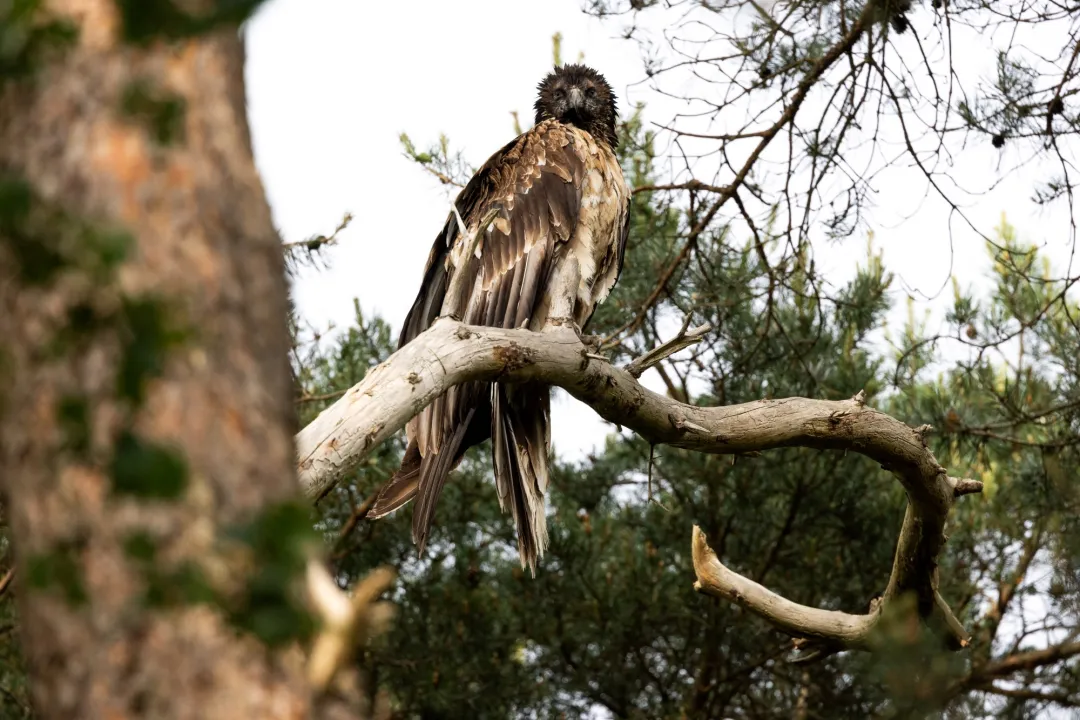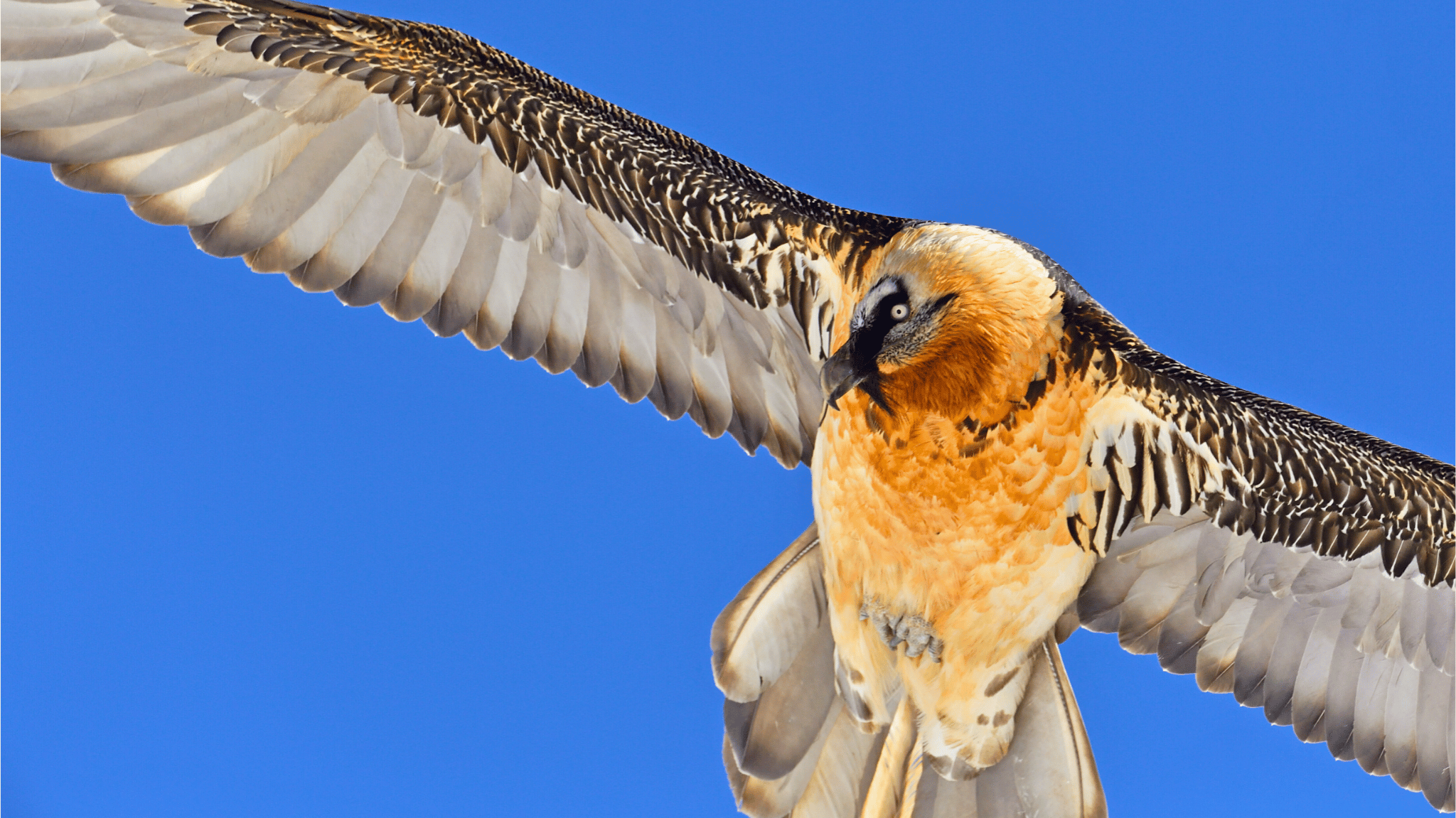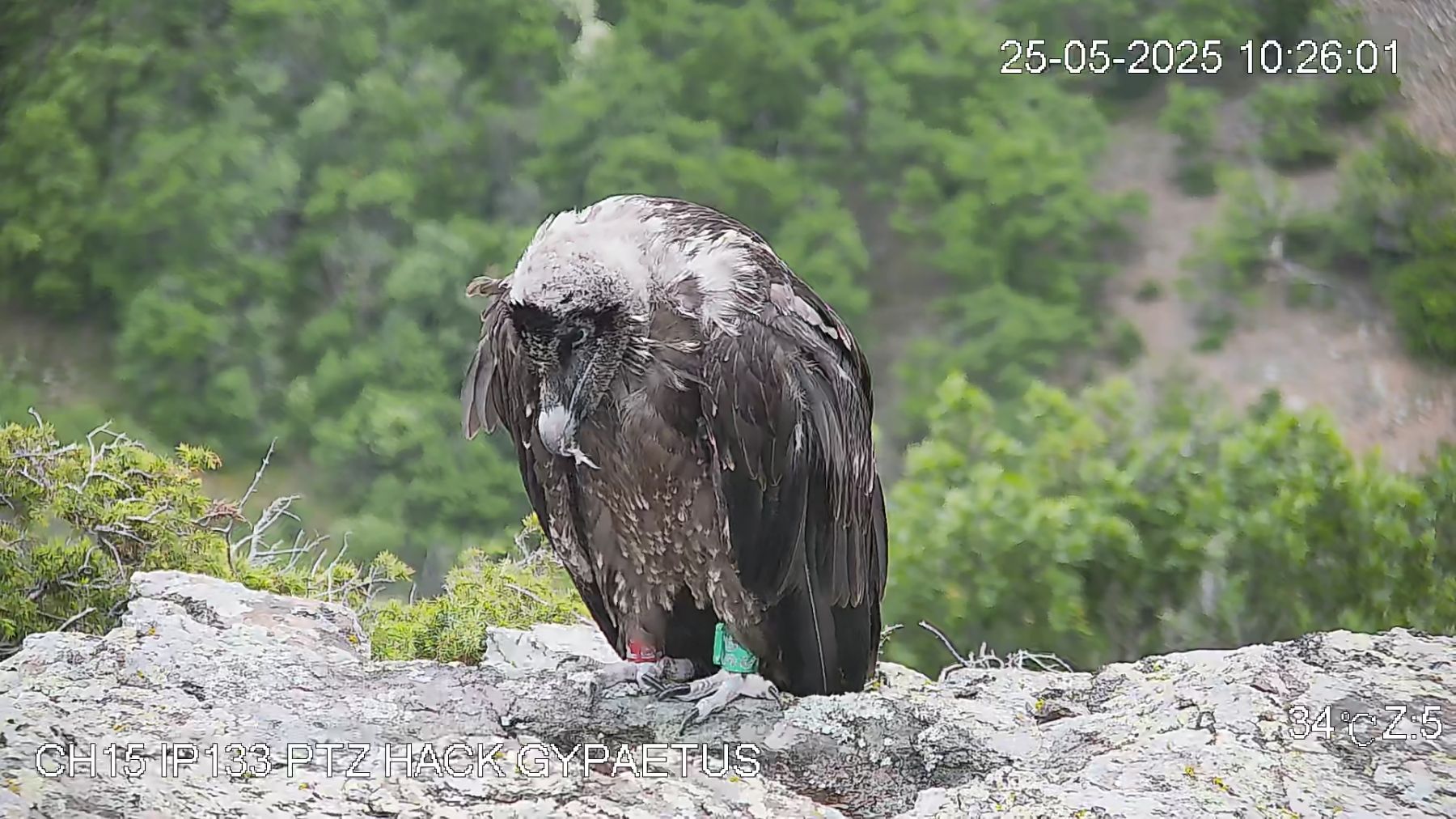There are birds whose names we don’t easily forget. Bearded Vulture Roc Genèse was one of them. Today, we share his life story and his unfortunate death. Unexpected situations happen frequently in captive-breeding centres; the dedicated staff that ensure these birds’ well-being on a daily basis are always facing surprising events.

Bearded Vulture Roc Genèse, the first wild-hatched Bearded Vulture tagged in the French Pyrenees
Bearded Vulture Roc Genèse hatched in the wild in 2016 in Aude, the French eastern pre-Pyrenees. The male was the first chick ever GPS-tagged in the nest in the Aude, named after a climbing club that collaborated in the tagging operation. The initiative was framed within the LIFE GypConnect project, which successfully established Bearded Vulture breeding nuclei in the Massif Central and French Pre-Alps to connect the Pyrenean and Alpine subpopulations genetically. The current LIFE Gyp’Act project builds on its success and ensures the continuity of all monitoring, tagging and releasing actions.
Following the movements of Roc Genèse
Since he fledged, we enthusiastically followed Roc Genèse’s movements, thanks to the GPS transmitter. He spent the first two years roaming in the central Pyrenees, returning briefly before heading back again to the High Pyrenees. After being spotted in Catalonia in 2018, the bird has returned to the Aude region.
In 2022, however, he was rescued in a forested area at the commune of Tarascon sur Ariège (Aude department). The bird was found on the ground, in reasonably good condition, with one wing hanging down, trying to fly away but unable to do so. It was immediately transferred to Dr Lydia Vilagine’s veterinary clinic for clinical examination. GPS was still present and marked with a TY 5295 museum ring. No wing lesions were noted, but minor puncture wounds on the tibiotarsals (from clawing or walking through bushes). The right foot was slightly more swollen than the left, but there was no sign of bubble foot. The X-ray showed a dislocation of the right shoulder.
Roc Genèse was unable to be released back into the wild
Roc Genése was transferred by car to the Hegalaldia Recovery Centre, where he recovered from the injury but was, unfortunately, unable to be returned to the wild. Within the Bearded Vulture Captive-breeding network, coordinated by us at the VCF on behalf of EAZA’s Ex-Situ programme, we are responsible for pairing newcomers (either wild-hatched non-releasable birds or captive-bred). A powerful male with an important genetic heritage and reaching sexual maturity, it was time to pair Roc Genèse! As he could not be returned to the wild, at the beginning of October 2023, Roc was transferred to the specialised breeding centre Richard Faust Zentrum (RFZ) in Austria, where other injured birds, such as a male from Kazakhstan with an amputated wing, have been able to breed yearly.
“He developed well, was very active in the aviary, ate well and made a satisfactory impression. He was also interested in the nest and would probably have been a breeding candidate this year or next.”
Team at the RZF
The sudden death of Roc Genèse
Roc left us unexpectedly; on 2 November 2023, he was found dead, lying on his back in a tiny pool of water that exists in each cage. Every captive-breeding facility within the Bearded Vulture EEP is expected to follow the same protocol to fulfil the species’ needs and ensure its well-being. This includes having a small pool with clean water around 20cm deep and a second one with ferruginous mud.
“Taking a bath whenever they want is necessary for the quality of the plumage, reducing ectoparasites. The mud bath is an inborn behaviour, and every Bearded Vulture does it whenever it has the possibility”.
Hans Frey, RFZ
With almost 50 years of experience working with Bearded Vultures in captivity, Hans had never seen a death like Roc’s. The aviary where Roc passed away is specially equipped for birds with flight disabilities, and dozens of other injured birds used that same cage. For some unknown reason, Roc Genése was unable to jump off the pond, eventually drowning. The old wing injury probably played a role, as intact Bearded Vultures use the standardised water basins without any problem.
“It’s hard to imagine that an adult bearded vulture could drown in a pool of water less than 20 cm deep, but the most incredible things happen in this world, and the bruised shoulder played a role in it.”
Martin Reifinger, Forensic expert
Captive-breeding is fundamental to ensure a brighter future for the species in Europe
Captive breeding plays a fundamental role in the several initiatives to restock and bring back the species to its historical breeding areas. Last year, we mourned the loss of three Bearded Vultures, BG 199, Winnie and Hanneke, all founders of the Bearded Vulture Captive-breeding Network. However, the 2022/2023 season marked an unprecedented milestone within the Bearded Vulture EEP, with 35 offspring successfully hatched in captivity – the highest number of hatchlings ever recorded – and 21 nestlings released in the wild.
Despite the sad loss of Roc Genèse, we will continue to work with the Bearded Vulture EEP partners. Follow the new breeding season, find out which pair laid the first egg of this season and watch Marie Antoinette lay an egg.


